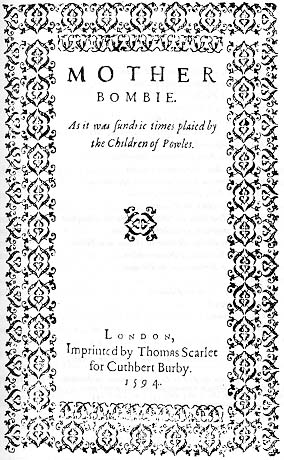Related Research Articles

Nasreddin or Nasreddin Hodja (1208–1285) is a character commonly found in the folklores of the Muslim world, and a hero of humorous short stories and satirical anecdotes. There are frequent statements about his existence in real life and even archaeological evidence in specific places, for example, a tombstone in the city of Akşehir, Turkey. At the moment, there is no confirmed information or serious grounds to talk about the specific date or place of Nasreddin's birth, so the question of the reality of his existence remains open.

A jester, also known as joker, court jester, or fool, was a member of the household of a nobleman or a monarch employed to entertain guests during royal court. Jesters were also traveling performers who entertained common folk at fairs and town markets, and the discipline continues into the modern day, where jesters perform at historical-themed events.

A Molbo story is a Danish folktale of the "town of fools" type about the people of Mols, who live in eastern Jutland near the town of Ebeltoft. In these tales the Molboes are portrayed as a simple folk, who act foolishly while attempting to be wise.

Wise Men of Gotham is the early name given to the people of the village of Gotham, Nottinghamshire, in allusion to an incident where they supposedly feigned idiocy to avoid a Royal visit.

Alvin Schwartz was an American author and journalist who wrote more than fifty books dedicated to and dealing with topics such as folklore and word play, many of which were intended for young readers.

The wise fool, or thewisdom of the fool, is a form of literary paradox in which, through a narrative, a character recognized as a fool comes to be seen as a bearer of wisdom. A recognizable trope found in stories and artworks from antiquity to the twenty-first century, the wisdom of the fool often captures what intellectualism fails to illuminate of a thing's meaning or significance; thus, the wise fool is often associated with the wisdom found through blind faith, reckless desire, hopeless romance, and wild abandon, but also tradition without understanding, and folk wisdom.
Keigo Seki was a Japanese folklorist. He joined a group under Yanagita Kunio, but often came to different conclusions regarding the same folktales. Along with collecting and compiling folktales, Seki also arranged them into a series of categories.

Mother Bombie is an Elizabethan era stage play, a comedy by John Lyly. It is unique in Lyly's dramatic canon as a work of farce and social realism; in Mother Bombie alone, Lyly departs from his dream world of classical allusion and courtly comedy to create a "vulgar realistic play of rustic life" in a contemporaneous England.
William Alexander Clouston was a Scottish 19th century folklorist from Orkney.

In mythology and the study of folklore and religion, a trickster is a character in a story who exhibits a great degree of intellect or secret knowledge and uses it to play tricks or otherwise disobey normal rules and defy conventional behavior.
Baka means "fool", or "foolish" and is the most frequently used pejorative term in the Japanese language. The word baka has a long history, an uncertain etymology, and sociolinguistic complexities.
The Bear and the Gardener is a fable originating in the ancient Indian text Panchatantra that warns against making foolish friendships. There are several variant versions, both literary and oral, across the world and its folk elements are classed as Aarne-Thompson-Uther type 1586. The La Fontaine version has been taken as demonstrating various philosophical lessons.
The title of Shakespeare's Jest Book has been given to two quite different early Tudor period collections of humorous anecdotes, published within a few years of each other. The first was The Hundred Merry Tales, the only surviving complete edition of which was published in 1526. The other, published about 1530, was titled Merry Tales and Quick Answers and originally contained 113 stories. An augmented edition of 1564 contained 140.

The fool is a stock character in creative works and folklore. There are several distinct, although overlapping, categories of fool: simpleton fool, wise fool, and serendipitous fool.
Kenneth Vidia Parmasad was an Indo-Trinidadian writer who specialized in writing children's books. Parmasad was also a noted lecturer at the University of the West Indies in St. Augustine.

There are many cultural references to donkeys or asses, in myth, folklore and religion, in language and in literature.

The Wise Men of Chelm are foolish Jewish residents of the Polish city of Chełm, a butt of Jewish jokes, similar to other towns of fools: the English Wise Men of Gotham, German Schildbürger, Greek residents of Abdera, or Finnish residents of the fictional town of Hymylä. Since at least 14th century Chełm had a considerable population of Jews.

Guru Paramartha or Gooroo Paramartan is a fictional monk introduced in Tamil culture by Catholic missionary Constanzo Beschi in his story Paramarthaguruvin Kadhai. Published in 1728, it is a satirical piece on a naive religious teacher and his equally obtuse disciples, Matti (dull-head), Madayan (fool), Pethai (ignoramus), Moodan (moron) and Milechan. It had a considerable influence on Tamil culture and even in modern says the name "Guru Paramartha" is synonymous to "fool".

A town of fools is the base of a number of joke cycles found in various cultures. Jokes of these cycles poke fun at the stupidity of the inhabitants of a real or fictional populated place. In English folklore the best known butt of jokes of this type are the Wise Men of Gotham. A number of works of satire are set in a town of fools.
References
- 1 2 3 4 Clouston, W. A. (1888). The Book of Noodles: Stories of Simpletons; or, Fools and Their Follies. London: Elliot Stock.
- ↑ "Joe Miller's Jests".
- ↑ Worstall, Tim. "Forbes". Forbes .
- ↑ Cantwell, Billy. "Irish Echo".
- ↑ Halliwell, James Orchard (1840). The Merry Tales of the Wise Men of Gotham. London: John Russell Smith.
- ↑ Marcus, Ezra; Bromwich, Jonah Engel (7 July 2020). "A Short History of 'Simp'". The New York Times.